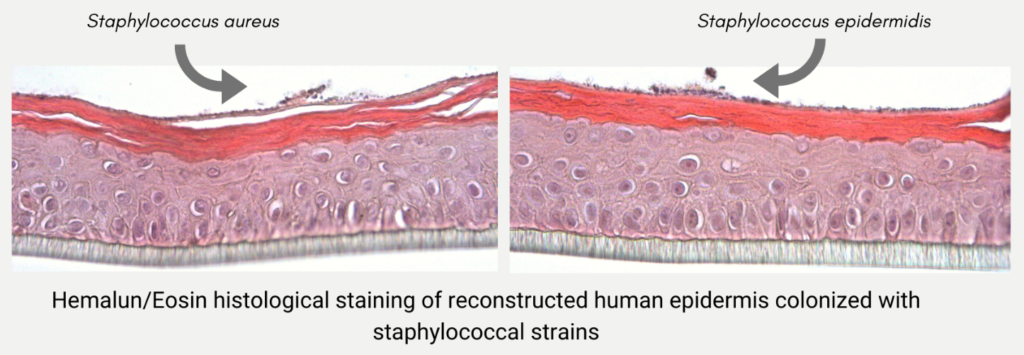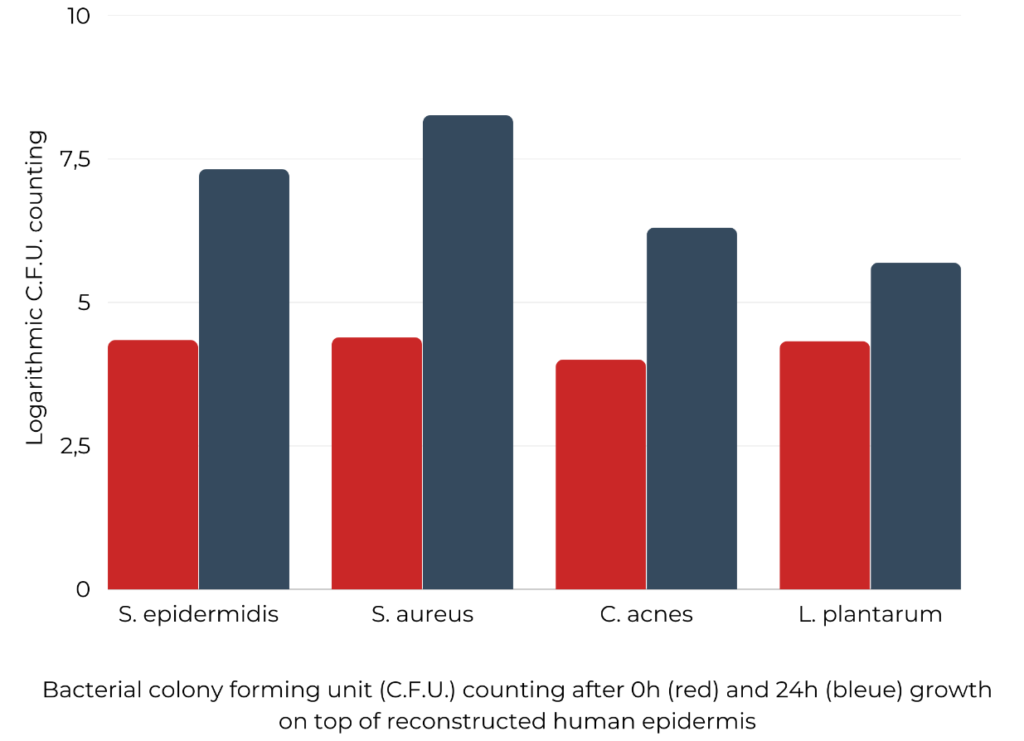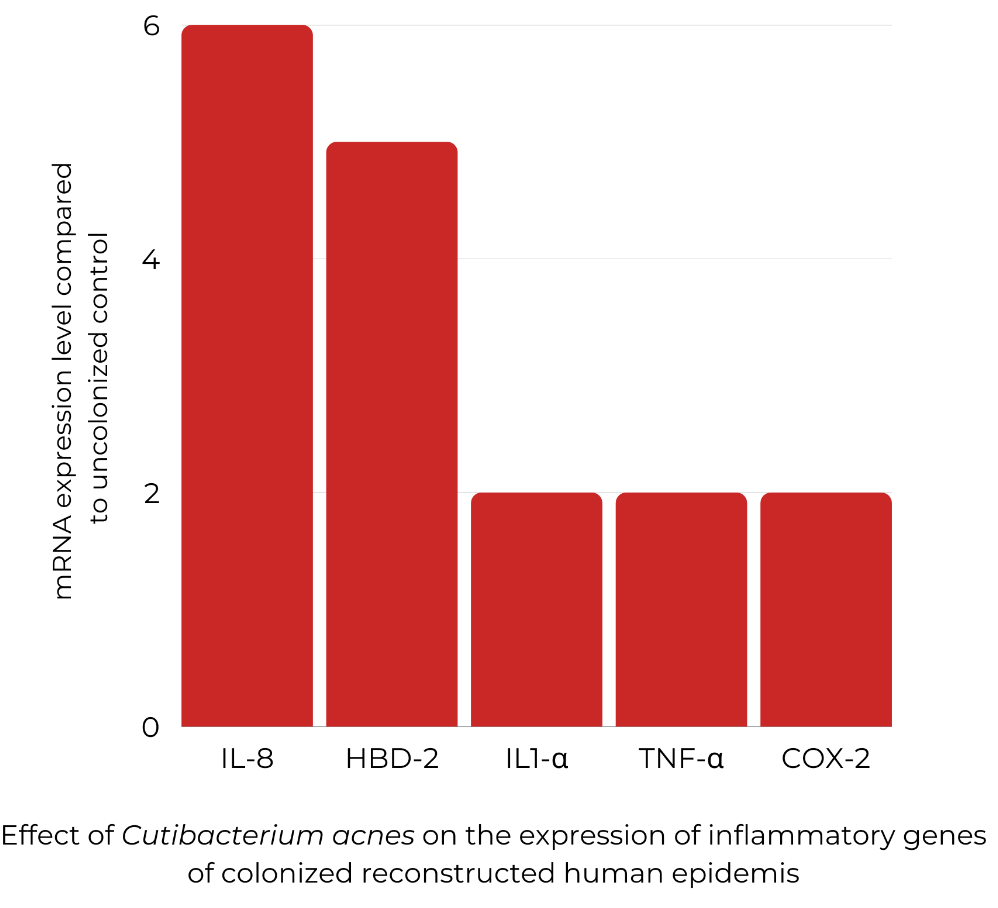StratiCELL at your side to fight against Maskne
9 March 2021
While it effectively protects us against the spread of viruses, the protective mask we wear every day has consequences for our skin. The skin breathes less and acne appear. This new skin phenomenon, called “maskne”, has become the battle horse of cosmetics, which are trying to provide effective and innovative anti-acne solutions. Who is the target? Cutibacterium acnes! This anaerobic bacterium of the cutaneous flora feeds on excess sebum, which releases short-chain fatty acids responsible for local inflammation…and inflammatory acne pimples appear on the skin. Today, it is also known that the IA1 phylotype of C. acnes must be targeted in anti-acne treatments, since it is largely dominant in acne flora.
As for other skin bacteria, its study in microbiological culture provides initial information on the effectiveness of ingredients in reducing or stabilising its growth. However, its study in a cutaneous context is required to provide additional information. This is why StratiCELL, as a leader on in vitro efficacy testing, has set up a microbiological platform, called MicroBIOS, where it infects its reconstructed epidermis with various natural strains such as Staphylococcus epidermidis, S. aureus and C. acnes.
This model of the cutaneous flora in its natural context makes it possible to study variations in adhesion and/or growth under the influence of specific dermo-cosmetic and pharmaceutical active ingredients.
But StratiCELL goes even further! Its team of microbiologists uses this model to also analyse the response of the epidermis in this infectious context. Colonisation by C. acnes indeed generates an inflammatory reaction which can be characterised in particular by an increase in interleukins and other pro-inflammatory molecules such as COX-2, TNF-alpha, or the defensin HBD-2. The ability of an active ingredient to reduce this inflammatory status can therefore be objectively assessed by monitoring the gene and protein expression of these key biomarkers.
Within its MicroBIOS platform, StratiCELL therefore offers an interesting double approach to the study of skin flora, namely the monitoring of bacterial behaviour on the one hand and the tissue response to bacterial infection on the other. In view of the growing interest in in vitro efficacy tests on skin flora, StratiCELL is continually expanding its panel of tests and strains, in order to offer innovative solutions for the investigation of pathologies involving skin flora.
To know more, click on https://straticell.com/microbios-platform or contact StratiCELL on info@StratiCELL.com
info@StratiCELL.com











 Follow us on Linkedin!
Follow us on Linkedin!
You must be logged in to post a comment.